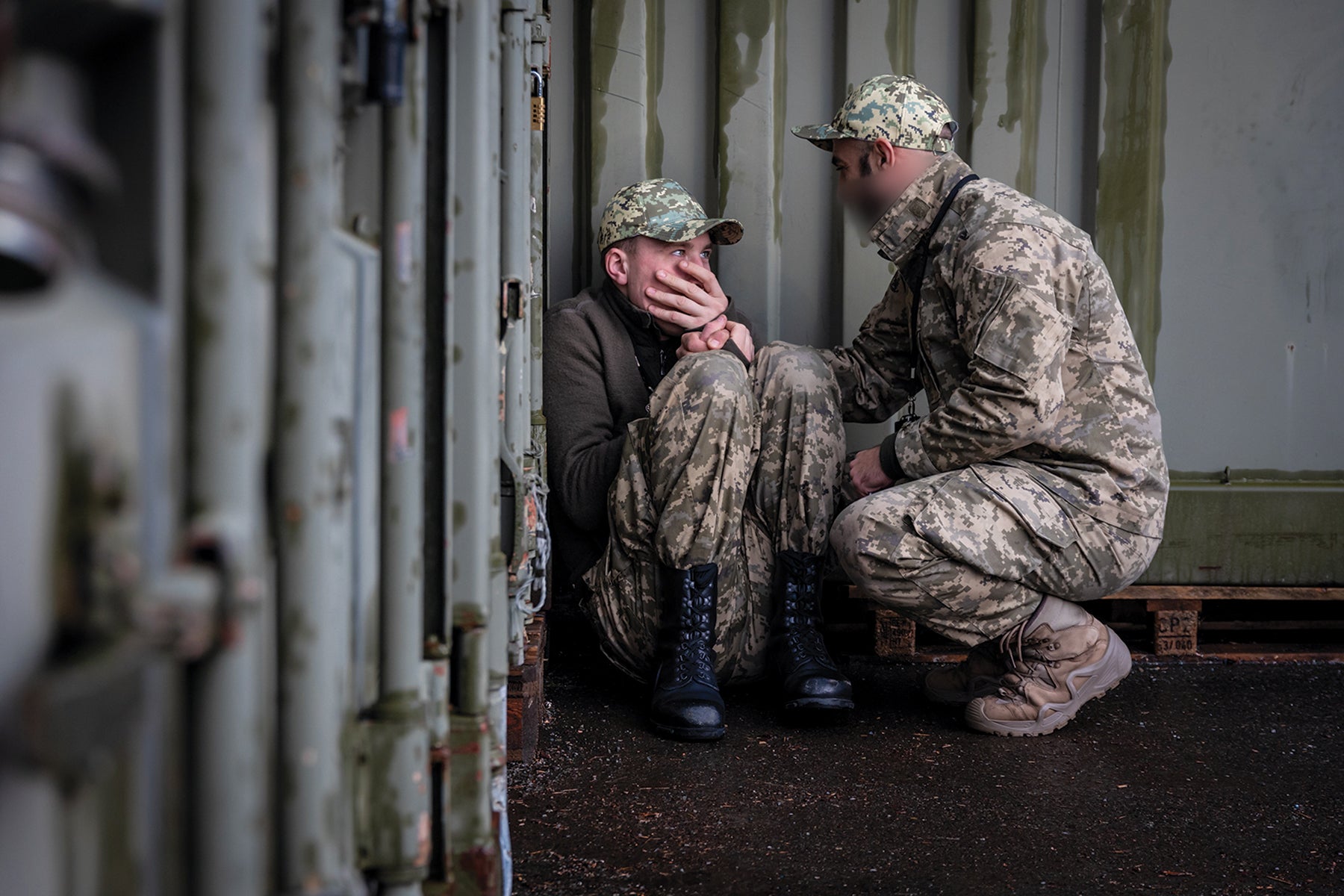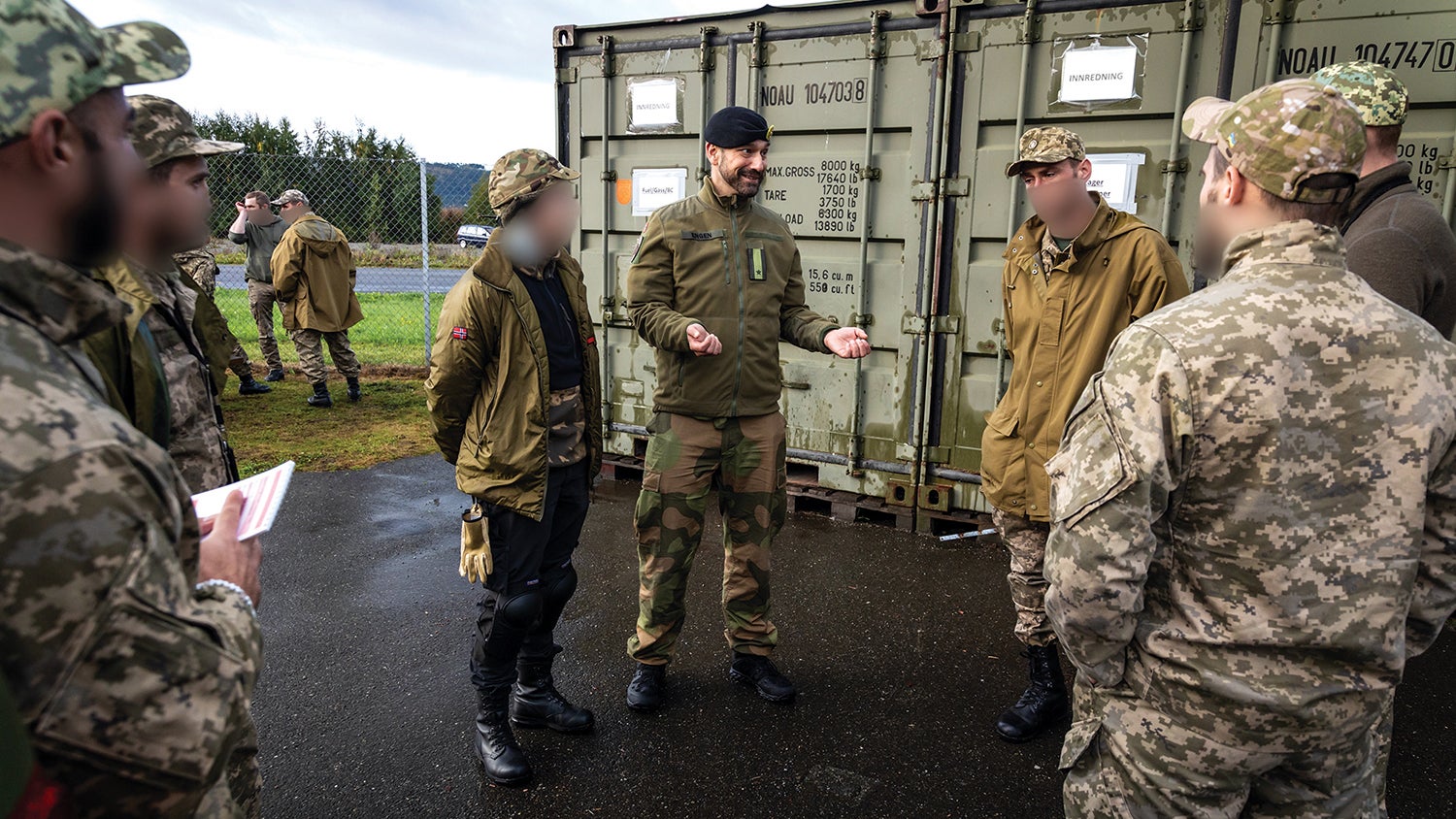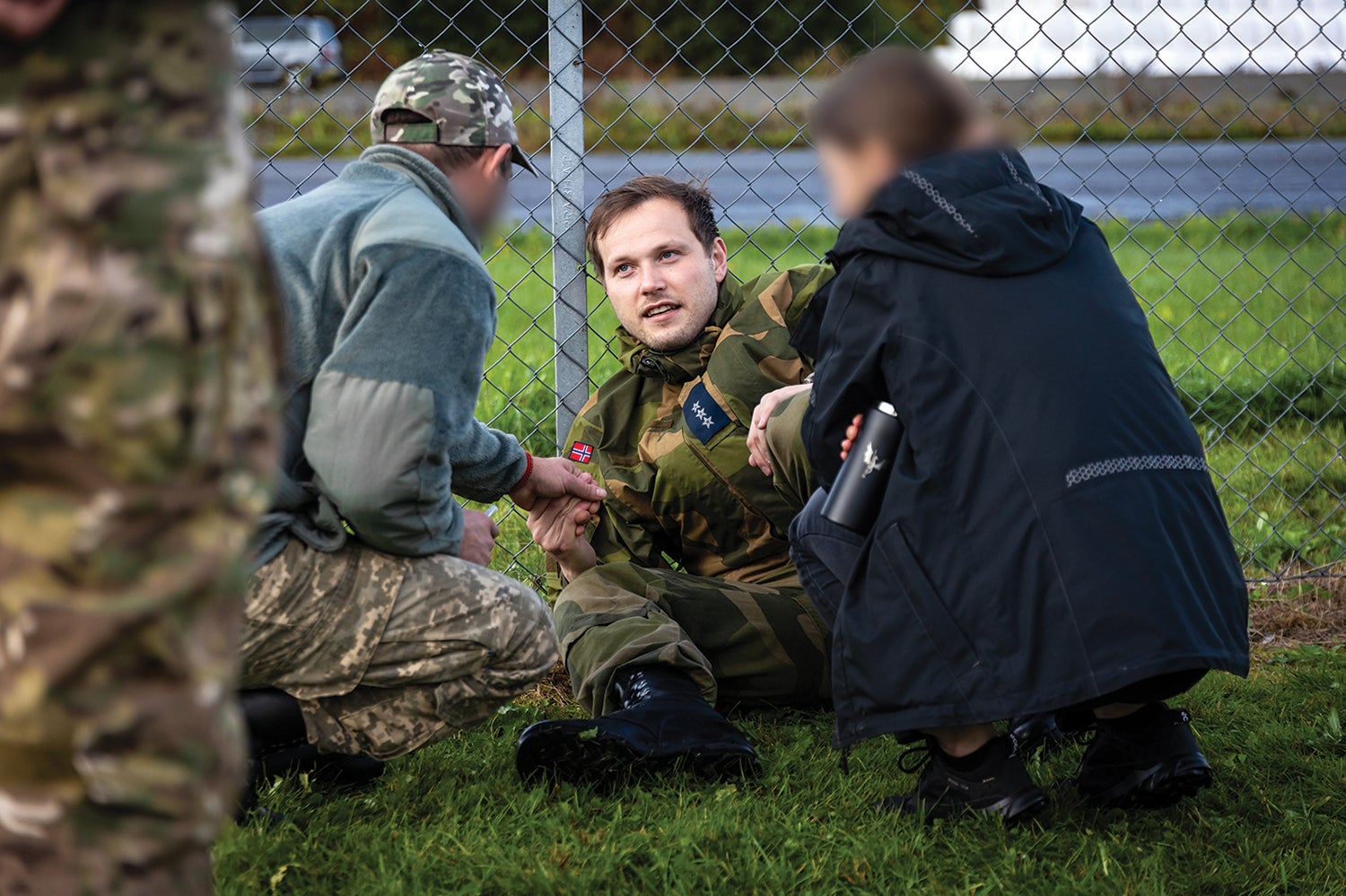Physically exhausted and mentally depleted, soldiers in battle are expected to perform under arduous conditions. To prepare for this challenge, the U.S. Army emphasizes tough, realistic training, yet, outside of a training context and miles away from the support of other units, it is difficult to know how soldiers will respond in combat.
High-intensity warfare requires individuals to function against a backdrop of harsh reality: losing team members to enemy fire, experiencing extended periods of psychological stress and operating with minimal medical support at the front line.
Mental skills that increase individual soldier resilience can make a difference in sustaining a warfighter in this environment. These skills can increase an individual’s ability to regulate their stress levels and equip them to help their battle buddies as well, strengthening the unit as a whole. Such skills can emerge organically through practice in the field and through encouragement and coaching from experienced unit members.
Alternatively, a more formalized approach can also be taken, where mental skills are taught through structured training programs like the U.S. Army’s Master Resilience Training and performance enhancement coaching. Indeed, U.S. and U.K. military studies show that formalized training in mental skills can improve soldier performance during demanding training scenarios.

Gaps Remain
While the Army embraces mental skills training, how these skills operate in combat and what domains are most relevant is less clear. The war in Ukraine can provide the U.S. Army unique insights into these gaps and a model for how to address them.
That is why the U.S. has teamed with Norway to build a resilience training program for Ukrainian soldiers fighting for their country.
Since Russia initiated a full-scale invasion of Ukraine on Feb. 24, 2022, U.S., Norwegian and other NATO units have been rotating through Eastern Europe to reinforce regional security. These allies also have taken on missions to train Ukrainian soldiers in a range of military skills. In April, the Norwegian Armed Forces launched Operation Gungne, providing advanced specialty courses for Ukrainian infantry, including a course for combat medics.
Given that medics are typically the only medical resource near the front lines, they need to be proficient in managing combat stress and strengthening unit mental health. Thus, mental skills are taught at the start of the combat medic course, as well as repeated and rehearsed at distinct points throughout the training. In developing the curriculum, the Norwegian Armed Forces Joint Medical Services turned to the U.S. Army’s Walter Reed Army Institute of Research for help in crafting modules on mental skills.
The lessons learned from developing this curriculum have direct relevance for U.S. soldiers and for future efforts in training allies. Besides reinforcing the need for international cooperation, these lessons include the importance of addressing mental skills in large-scale combat operations and strategies for conducting such training.
Following initial guidance from the armed forces of Ukraine, the U.S.-Norwegian team created a program called Operational Resilience Training. Most training modules were adapted from material originally developed by the Walter Reed Army Institute of Research. The 11 initial modules consist of a total of approximately 20 hours of classroom lessons and practice integrated into field exercises as part of other training events spread over four weeks.

Mental Health Training
The modules begin with a discussion of combat stressors, from hassles to traumatic experiences. Medics are then trained to understand that mental health exists along a continuum ranging from healthy and even optimal readiness, to reacting, feeling strained and being combat-ineffective. The training continues by helping medics see how to align mental skills and interventions to where soldiers are along this continuum of mental health.
After providing a foundation for active listening techniques, the training addresses physical, emotional, cognitive or behavioral reactions that occur in response to prolonged or intense stress. The training module teaches medics to recognize combat operational stress and to intervene appropriately. The next module spotlights the importance of sleep and reviews methods for enhancing quality sleep in high-stress environments.
The training then introduces performance-enhancement skills that can be used before, during or after missions. For example, one skill is postponing worry, which helps individuals manage distracting rumination. Another skill is a grounding technique in which soldiers rapidly review three things they can see, hear and physically feel to reduce anxiety. Other examples include deliberate breathing for managing energy, self-talk to increase motivation and cues for focusing attention on the moment. After medics practice using each skill themselves, they practice coaching others.
Soldiers then are trained in iCOVER, a peer-based intervention for helping unit members manage acute stress reactions in teammates. An acute stress reaction is when an individual is so overwhelmed by stress that they are unable to function. In other words, they freeze, become disoriented or panic.
Even if this reaction is temporary, it can endanger the individual and those around them. iCOVER offers simple steps that can rapidly bring an individual back to functioning.

Building Unit Cohesion
Another module focuses on team cohesion. This module emphasizes practical methods for enhancing effective communication, building trust and establishing ground rules for conflict resolution in units. The circumstances regarding mobilization in Ukraine means teams may have relatively little time to build cohesion. Indeed, Michael Kofman, a military analyst at the Washington, D.C.-based think tank Center for a New American Security, singled out building rapid cohesion as one of the major challenges facing the Ukrainian armed forces in comments in a July 28 online article on The Economist website and during a July 20 podcast on the War on the Rocks website.
While each of these modules was adapted for the Ukrainian cultural context, the U.S.-Norwegian team also developed two modules specifically for stressors being experienced by Ukrainian soldiers. These new modules provide insight into what may be needed to support U.S., Norwegian and NATO troops deploying to future large-scale combat operations.
The first new module tackles mental skills needed to manage human remains. While typical military training addresses technical aspects related to managing human remains, the mental component of these tasks is seldom addressed directly. In the U.S.-Norwegian module, mental skills include focusing on the task (not the remains), taking breaks before they are needed and managing lingering memories of the experience. These skills prepare medics at the front line to coach units and unit leadership in navigating this profoundly difficult challenge.

Relentless Grief
The second new module addresses grief. The reality of war in Ukraine has meant that addressing grief is a priority. Soldiers are grappling with personal losses and corresponding grief at a scale the U.S. and Norway have not experienced in generations.
One difficulty in dealing with this level of grief is that it is relentless—soldiers consistently experience fresh loss without having had time to mourn the previous loss. This new module provides soldiers a framework to understand their reactions and outlines practical ways to support affected individuals and units.
Following classroom training, the material is reinforced in field exercises. Soldiers also are encouraged to use their new skills to enhance their performance on a range of military tasks. These tasks include performing at the firing range, effectively leading teams and supporting other soldiers during tactical maneuvers.
As of mid-October, there have been five rounds of training with Ukrainian soldiers.
Both formally through surveys and informally through feedback to training cadre, it is evident that Ukrainian soldiers are enthusiastic about the skills taught in Operational Resilience Training. Their survey responses show that approximately 99% of respondents see the training as both “important” and “relevant,” and 95% see the training as either “good” or “very good.”
Also, there has been more than a 41% increase in confidence from before to after training in how to manage the stress reactions of unit members in combat, and a 26% increase in confidence in managing their own stress. Across cohorts, most students have had extensive combat experience and come directly from the front lines. Thus, it is particularly striking that these students believe the material taught in Operational Resilience Training addresses a critical gap in their skill set.
In addition, the training material works well as an integrated whole. Modules build on and amplify each other. The mental skills also complement the work of cadre who are training more traditional components of the combat medic course.

Intense Scenario
One such example is when students practice evacuating a field hospital under artillery fire. In this intense scenario, instructors use a decibel meter to assess stress levels, since teams that are more stressed tend to be louder. Depending on the team’s noise level, instructors remind the students of the mental skills they have learned earlier, prompting them to regulate their own emotions, the emotions of their teammates and even the emotions of the “casualties” during the scenario.
Collectively, the positive response to the training material highlights the importance of equipping soldiers with mental skills. Validation from those fighting in the trenches reminds us of the value of integrating mental skills into military training, and research can keep us on the right track and inform the development of new material.
Partnering with allies is one way to ensure that training is optimized so soldiers are prepared to function during large-scale combat operations. To meet the requirements of future conflict, we have much we can learn from our counterparts in Ukraine. Lessons learned from this initiative put NATO at the forefront of training soldiers in mental skills needed to adapt to modern warfare. This collaborative and innovative approach can strengthen the mental skills of warriors facing future conflicts.
* * *
Brig. Gen. Petter Iversen, M.D., is the surgeon general of the Norwegian Armed Forces, Sessvollmoen, Norway. Previously, he served as commanding officer and chief of surgery at the War Surgery and Emergency Medicine Division, Norwegian Armed Forces Joint Medical Services. He is a consultant orthopedic trauma surgeon and has done several deployments to Afghanistan and Chad, and anti-piracy operations to the Indian Ocean. He also has served as a trauma surgeon and senior medical officer.
Amy Adler is the senior scientist at the Center for Military Psychiatry and Neuroscience, Walter Reed Army Institute of Research, Silver Spring, Maryland. She is a clinical research psychologist.
Cmdr. Andreas Espetvedt Nordstrand and Maj. Haakon Engen, clinical psychologists with the Institute of Military Psychiatry, Norwegian Armed Forces Joint Medical Services, contributed to this article.

